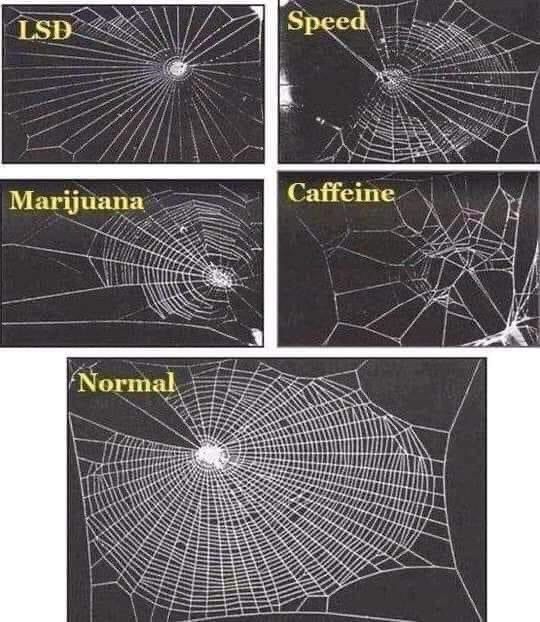
Nicolas Hubacz: How Psychoactive Drugs Alter Spider Web Construction
Nicolas Hubacz, Research and Clinical Products Business Development Manager at Magstim, shared a post on LinkedIn:
“How Psychoactive Drugs Alter Spider Web Construction
In 1995, scientists explored how different drugs influence spider web construction to understand their impact on behavior and motor skills. This research was initiated due to a zoologist’s request to alter the time garden spiders build their webs. The team administered various psychoactive substances, such as amphetamine, mescaline, strychnine, LSD, and caffeine, observing changes in web size and shape rather than timing.
Low caffeine doses led to smaller webs with uneven radii, while higher doses resulted in even smaller, irregular designs. Each drug induced different effects: sleeping pills caused drowsiness and incomplete webs, Benzedrine created zigzag patterns, marijuana resulted in missing inner sections, and scopolamine disrupted directional sense.
The study highlighted how drugs affect spider behavior, offering insights into the broader impacts of psychoactive substances across species.”

Stay updated with Hemostasis Today.
-
Feb 26, 2026, 15:58Daniel Victor Ortigoza։ Lipoprotein(a) Levels Predict Long-Term Cardiovascular Risk in Women
-
Feb 26, 2026, 15:51Augustina Isioma Ikusemoro: The Real Miracle in Trauma Care Happens Behind the Scenes
-
Feb 26, 2026, 15:42Jim Hoffman։ Targeting NETosis to Improve Perfusion and Reduce Thrombosis in AMI
-
Feb 26, 2026, 15:40Elvira Grandone: ISTH Launches An International Survey to Capture Real-World Practice of Pregnancy Anemia
-
Feb 26, 2026, 15:39Ashok Yadav: Placental Glycogen as a Vital Energy Reserve for Fetal and Placental Health
-
Feb 26, 2026, 15:37Nayab Ahmed: Main Reasons for Washing Platelet-Rich Plasma
-
Feb 26, 2026, 15:36Robert Negrin Shares His Outlook for the Year Ahead as ASH President
-
Feb 26, 2026, 15:24Nancy Shapiro: Excited to See This Publication on Current Landscape of Anticoagulation Stewardship Released
-
Feb 26, 2026, 15:15Ahmed Nasreldein: Stay Current on Key Updates in Ischemic and Hemorrhagic Stroke

